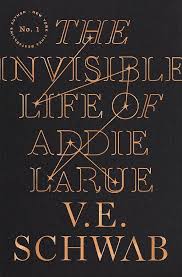Chapter XVIII
byChapter XVIII begins with the protagonist standing on a rooftop that has long held significant meaning in his journey. It is here, amid the quiet cityscape, that pivotal moments of his life have unfolded—moments tied to the dramatic pact he made years ago. Now, poised at the edge of what feels like destiny, he stands beside Addie, both hand in hand, embodying a delicate mix of solidarity and apprehension. Together, they face the impending uncertainty, each moment charged with the weight of what is about to come.
As the protagonist reflects on the uncertainty of his future, the narrative skillfully delves into his internal turmoil, portraying his oscillation between resignation and defiance. Caught in the deep contemplation of his impending death, he grapples with a fear of the unknown. The question lingers: will his death come suddenly, like a violent storm ripping through everything, or will it be a slow, almost imperceptible fading, a quiet slipping away into the dark? The ambiguity of what awaits him is shrouded in mystery, yet amidst the anxiety, he finds a strange sense of peace, an acceptance that death is inevitable and beyond his control.
Amid these heavy reflections, Henry, the protagonist, comes to terms with the unresolved aspects of his life. He acknowledges the goodbyes he never had the chance to say to Bea and Robbie, understanding that his absence will cause pain to those he leaves behind. This awareness deepens the conflict within him—though he accepts his end is near, there is still a part of him that longs for more time, more chances to right wrongs and connect with loved ones. The internal tug-of-war between acceptance and regret becomes a pivotal theme in this chapter, underscoring the complexity of human emotions when confronted with life’s finality.
As the clock ticks closer to its destined hour, Henry and Addie share a quiet but intimate moment, choosing to dance together in defiance of the storm that looms around them. This act of connection serves as a powerful statement—one of love, but also of presence. It is a defiance against the overwhelming certainty of death, a declaration that they exist, even in the face of oblivion. The rain begins to fall, adding an extra layer of symbolic weight to the moment. As the drops mix with the earthy scent of the city, it creates a poetic representation of the intertwining cycles of nature and human existence, the ebb and flow of life and death, joy and sorrow.
The chapter reaches its climactic moment as time and emotion converge. Henry finds himself caught in a whirlwind of acceptance and denial, struggling to reconcile the inevitable with the human instinct to resist it. As the final moments draw closer, he experiences a profound realization: no matter how prepared one believes they are for death, when it arrives, it will always catch them off guard. The reality of this truth is universal, a shared experience for all, whether ready or unwilling. Throughout this final realization, Addie remains by his side, her presence providing a sliver of comfort amidst the chaos. Their bond remains unshaken, and together they stand, embracing the truth in silence: “It is time.”
This chapter explores deep themes of mortality, love, and the complexities of the human experience. Through Henry’s reflections and his connection with Addie, it highlights the inevitability of death and the quiet power of acceptance. In these final moments, the chapter reveals that while we may try to prepare for the end, death always arrives unexpectedly, reminding us that the journey of life is about embracing the present, cherishing the connections we have, and finding peace in the moments we share before the inevitable conclusion. The rain, the dance, and their shared silence stand as metaphors for the resilience of the human spirit and the profound love that transcends even the finality of life itself.


